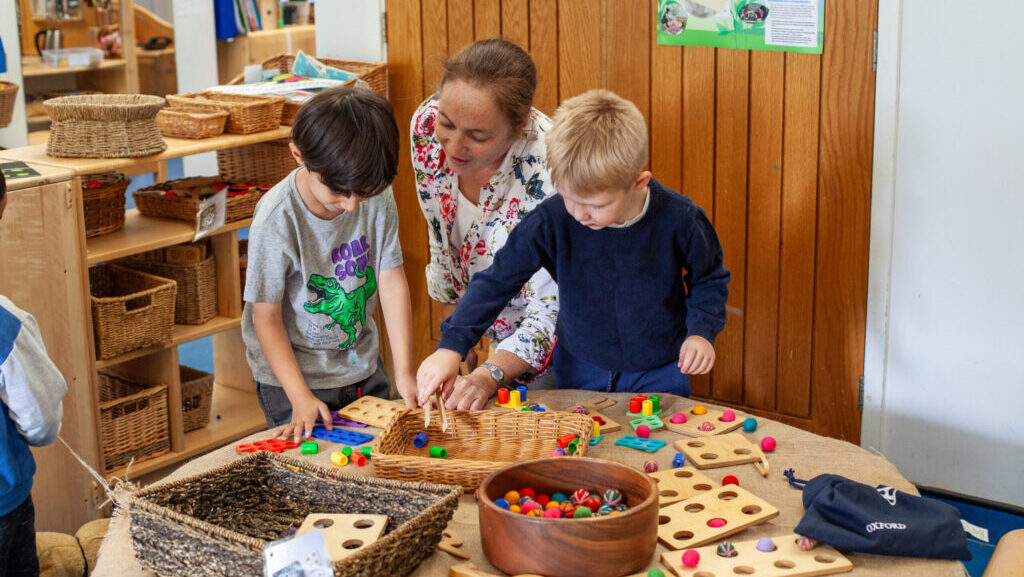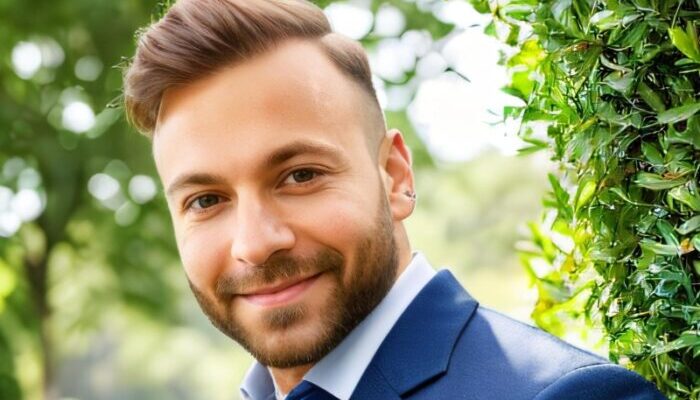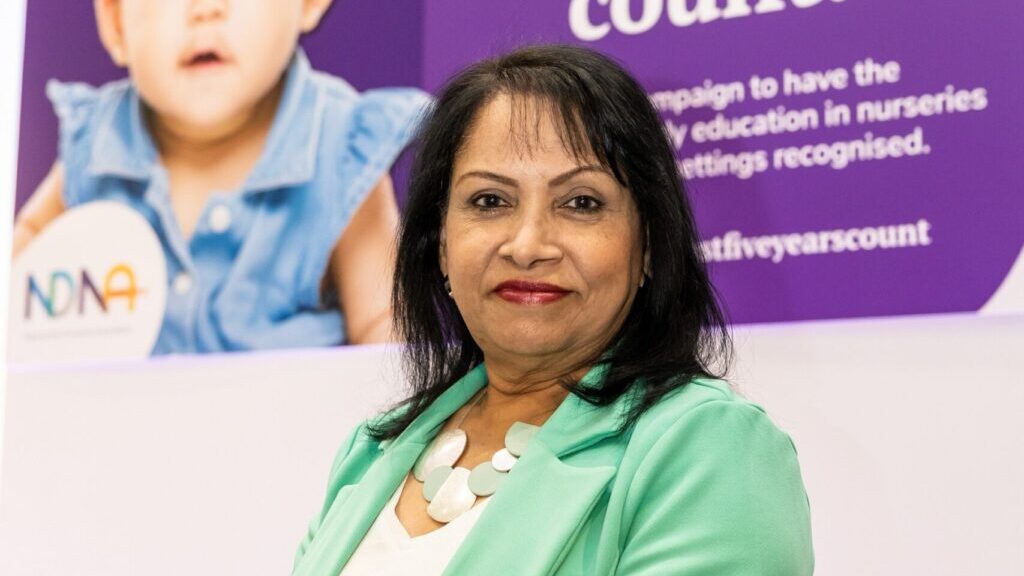Upskilling your team to engage in reflective practice and action research can boost staff retention and wellbeing, as well as…
Wellbeing in the curriculum
Michelle Demirtas, head of pedagogical research and development, emotional wellbeing at Bright Horizons explores the critical role of focusing on wellbeing within your curriculum to foster confidence, emotional development and long-term success
Can you describe your overall approach to embedding wellbeing in your curriculum?
This is done through our ‘Nurture Approach’, which is research-based and exclusive to Bright Horizons. It provides a unique way of being with, teaching, and caring for young children.
Our Nurture Approach, which is our bespoke educational framework, places wellbeing at the centre of everything we do. It provides the conditions for children to thrive by recognising that emotional wellbeing underpins learning and development. Furthermore, opportunities to learn and develop contribute to confidence, self-esteem, critical thinking and emotional growth.
How do you ensure that each child’s unique needs are identified and addressed within your curriculum?
The Bright Beginnings curriculum gives our practitioners a framework to plan developmentally appropriate experiences that promote holistic learning; it’s not separated into ‘boxes’ or subjects, instead learning experiences are connected and help children acquire a wide range of essential skills and competencies for their future.
How do you assess and understand the unique needs of each child in your care?
Our practitioners work with families to support children through each stage of their learning journey. If a child is developing differently to their peers, they are provided with the individual support they need to make progress. This way we provide a truly child-centred approach to inclusion.
Can you provide examples of activities you have implemented that specifically aim to enhance children’s wellbeing?
Our Bright Beginnings curriculum includes opportunities and experiences such as ‘mindfulness’, ‘relaxation’, ‘outdoor play’ and ‘forest school’, which alongside the nurturing care and support offered through our day-to-day practice, help children to develop a sense of personal wellbeing. They will engage with nature, pursue their own interests and experience periods of calm reflection under the guidance of their key person.
We continue to review our physical environments, developing truly ‘home from home’ experiences. These include:
- Snuggle sofas in our baby rooms and generally more homely spaces for our youngest babies.
- The introduction of a ‘family dining’ concept to support mealtimes.
- Ongoing research into the movements of toddlers and two-year-old children, in collaboration with Dr Sandra Duncan.
This is helping us to ensure our play spaces for children continue to provide the best possible experience.
What training do team members receive to support children’s wellbeing effectively?
Our expert early childhood team delivers the nurture model training, which is an extended professional development programme. It’s available for all our practitioners to support them with their understanding of our Nurture Approach.
The programme also has a range of resources and learning modules to support with the delivery of our bespoke curriculum. All our nurseries also have specialist SEND practitioners who receive tailored SENDCo training to support children with special educational needs and disabilities.
This 18-hour classroom-based learning programme is delivered over a five-month period. Modules are competency based, ensuring the knowledge and skills to support all children with additional needs. The communication champion in each nursery follows a six-month, classroom based programme, which includes Makaton.
How do you ensure that your staff can recognise and respond to the individual emotional and developmental needs of children, especially with SEND and additional needs?
Our key people develop a strong relationship with the children and their families providing individualised, responsive, care and support through each stage of their journey. In addition, each setting has a trained SENDCo. Our teams utilise a specially created SEND toolkit that provides advice and strategies to meet children’s individual needs.
The SENDCo is the designated point of contact for parents and staff who need additional information for individual children according to their unique learning needs. They provide professional development in the nursery through regular meetings, securing early identification of children who might need extra help and support. Our wellbeing and early help specialist is available to provide additional support to parents, practitioners and children who need it.
There is a dedicated SEND intranet channel and regular networking events to provide further support for practitioners. An early childhood specialist and the subject matter expert for SEND maintains regular contact and provides expert guidance. In addition to supporting children with special educational needs, we also have a programme to support children who speak English as an additional language, through our specialist communication champions, who receive specific training to ensure exemplary practice in this area of teaching and learning.
How do you measure the effectiveness of your wellbeing initiatives?
We carry out independent research and collaborate with academic institutions to measure and evaluate the impact of our wellbeing initiatives. We also use Thrive Online to identify the progress of children in social and emotional development.
Can you share any success stories or outcomes that highlight the effect of your curriculum has had?
In 2021, we conducted research into the impact of our Bright Beginnings curriculum. Findings from this demonstrated that practitioners’ understanding of the holistic nature of children’s learning and development was significantly improved when they used the Bright Beginnings curriculum, which moved away from traditional ‘subject areas’ of learning, to a more skills-based approach to children’s learning.
Strong evidence is also coming through in Ofsted inspection reports about the positive impact of our Nurture Approach in our nurseries. For example, an inspection at Raynes Park Day Nursery on 24 July rated Good includes: “Staff have recently attended Nurture training and have learnt about children’s brain development and how to look at things from a child’s point of view.
This has had a huge impact on their confidence and raised the quality of teaching and outcomes for children.” From Chineham Day Nursery, inspected 24 May, rated Outstanding: “Staff place a great emphasis on promoting children’s self-confidence and emotional wellbeing. Older children begin to understand and recognise feelings and emotions. This is because staff support them to learn how to regulate these emotions through a Nurture programme that is in place throughout the nursery.”
How do you ensure that your wellbeing initiatives are inclusive to the diverse backgrounds of the children?
Activities, resources, books and toys reflect all members of our society and present positive role models and non-stereotyped images.
What are your future goals to progress further with wellbeing in your curriculum?
The simple answer is: more research. We were the first large provider in the UK to develop our own curriculum in 2020 and this was underpinned by extensive research and developed in response to changes to the EYFS at the time. The research findings on the impact of the curriculum informed our development of our Nurture Approach.
Latest Features
Male nursery team members can enrich the learning environment for younger children. Claudio Sisera head of diversity and inclusion at…
Last year, National Day Nurseries Association brought together a range of early years experts to produce the Blueprint for Early…





